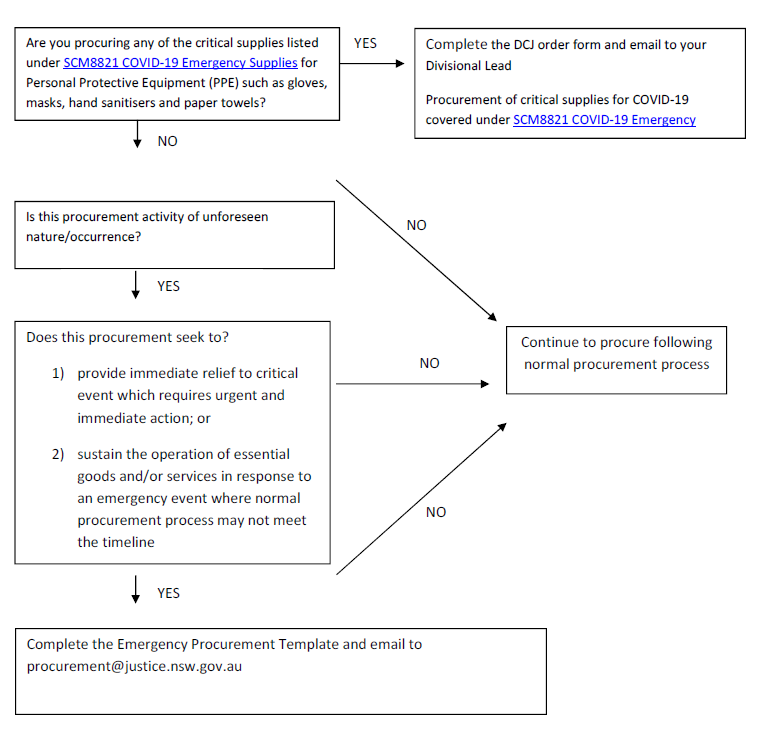Automatic language translation
Our website uses an automatic service to translate our content into different languages. These translations should be used as a guide only. See our Accessibility page for further information.
Effectively managing the COVID-19 (coronavirus) pandemic requires a coordinated approach. This includes centralising the procurement of critical goods and services, coordinating engagement with suppliers, and appropriately allocating goods and services across agencies.
Due to the extreme shortages of certain categories of goods across the world, the State Emergency Operations Controller (SEOCON) has centralised the procurement of critical goods and services to ensure supply for NSW Government through a combined procurement spend.
All new orders of critical goods (outlined below) cannot be purchased by individual areas within DCJ and instead must follow the centralised process.
For any other purchases, the emergency procurement provisions may apply.
All divisions have nominated divisional leads to help coordinate access to critical goods and approvals for emergency procurement. This includes decisions around the local procurement of specific items. Please find the divisional leads list on the COVID-19 Emergency Procurement page of the Justice intranet.
The SEOCON have identified the following categories of goods as critical:
This list is being updated regularly and new categories of goods and services may be added or removed to the critical suppliers as the circumstances change.
To order these goods, please contact your pandemic divisional lead using the Critical Goods and Services Order Form. (The divisional leads list and order form is available on the Emergency Procurement page on the DCJ Intranet.
Emergency procurement is required in order to preserve life, safety and wellbeing, and to meet unprecedented demand for critical goods and services. The information below does not apply to the procurement of critical goods identified above.
The relevant business area will need to conduct a case by case assessment to determine if the procurement satisfies the need for an emergency procurement using the Emergency Procurement Request Template (available on the DCJ Intranet Emergency Procurement page). This may include but is not limited to, assessment by the agency of the following factors:
When procuring under the emergency provision:
To complete emergency procurements, please contact your pandemic divisional lead using the Emergency Procurement Request Template (available on the DCJ Intranet Emergency Procurement page).

For enquiries, advice or assistance, email procurement-covid19@dcj.nsw.gov.au
20 Sep 2022